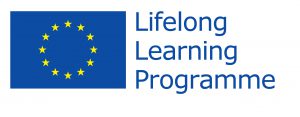In previous projects (CENTRAL, EUCOLOG, Prolog, Novalog, EURO TRANS LOG, ProfDRV) foundations were laid for improved, more transparent, more innovative qualifications and training in the sector.
The METALOG project aimed at concerting and transferring efforts hitherto undertaken by various European logistics projects and initiatives and to consolidate and broaden existing networks and partnerships in the sector.
The consolidation and sustainable transfer of previous outcomes of European logistics projects will be supported by the development of a Qualifications Framework for the logistics sector (LQF) and activities towards the long-term establishment of a “European Logistics Skills Network."
The Qualifications Framework was developed by using previously developed approaches for the establishment of sectoral qualifications frameworks developed in the projects Car Easy VET, Matching Frames and NQF-SQF and transferring and using outcomes such as sector surveys and analyses as well as occupation / competence profiles that have already been developed in projects such as CENTRAL and Novalog, EUCOLOG, Prolog. The basis for the development of the framework was the EQF (and NQFs), i.e. the sectoral framework was related to EQF and NQFs.
In order to ensure the applicability, validity and relevance of the LQF, it was extensively tested among its target groups (logistics companies, employees, training providers, social partners and regulatory bodies and logistics experts. The results of the testing phase were mirrored back into the development process and the LQF was adapted accordingly.
The project intended to lay the foundations to initiate a European Logistics Skills Network in order to ensure the sustainable exploitation of project results and to improve the dialogue between stakeholders of skills development in the logistics sector.The skills network will support relationships between VET and the world of work with the aim of better matching VET / qualifications systems with the requirements of the labour market and in order to contribute to better anticipation of skills needs.
The project hoped to make a contribution to greater transparency and comparability between qualifications / qualifications systems as well as laying the foundations for a common qualifications framework and mutual understanding and recognition thereof in the sector.
The involved project partner organizations came from Germany, France, Austria, the United Kingdom, Italy, and Hungary.


